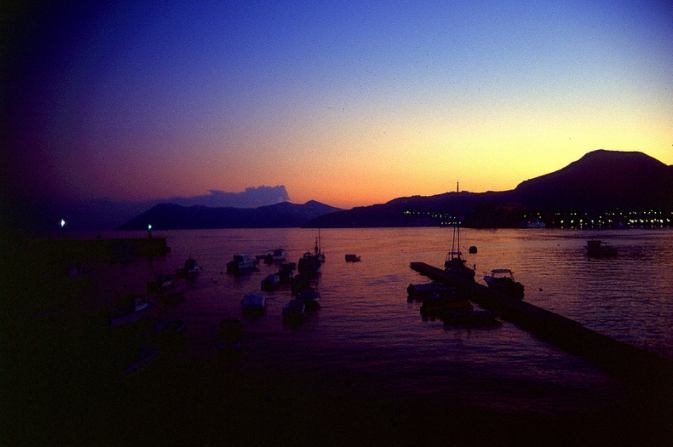I found the Cyclops and his Galatea
in their shop on Piano Provenanza.
They’d been domestic for a while.
I’d gone for his wildflowers and Ragabo pines.
I’d gone for the wintry July breezes that
dilute the sulfur of his neighborhood.
I’d gone to see the roughened lava of
his searching, the obsidian of his instant grief.
His single lens reflex captured what
his father pitched out of the house. You can’t
imagine how hard it is to raise boys these days,
scoriae and ash, knee deep in hornblende.
October ’02, even old seismologists
were amazed by what the old man still tossed up.
And Galatea, from Ethiopia, strung
for sale the pyroclastics into “et’nic” jewelry.
He showed me some appealing color prints.
Asked if I liked Sicilians over Italians.
Full stop. As I saw it, there were three
potential answers—Sicilians (what he wanted
to hear?) Italians (what he thought to hear?)
or neither (true for me, a nohbdy,
a traveler skilled in few ways of contending).
Nohbdy. In the roman mosaics at
Casale it’s a third eye which Ulysses
sees the Polyphemus passing round.
Judith Baumel is professor of English at Adelphi University and has served as president of the AWP and director of the Poetry Society of America. Her books of poetry are The Weight of Numbers—winner of the Walt Whitman Award from the Academy of American Poets—Now, and The Kangaroo Girl.




